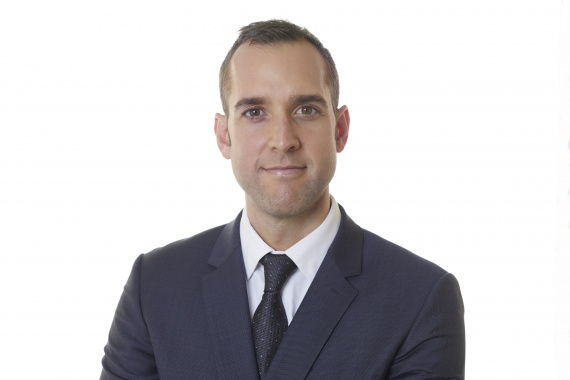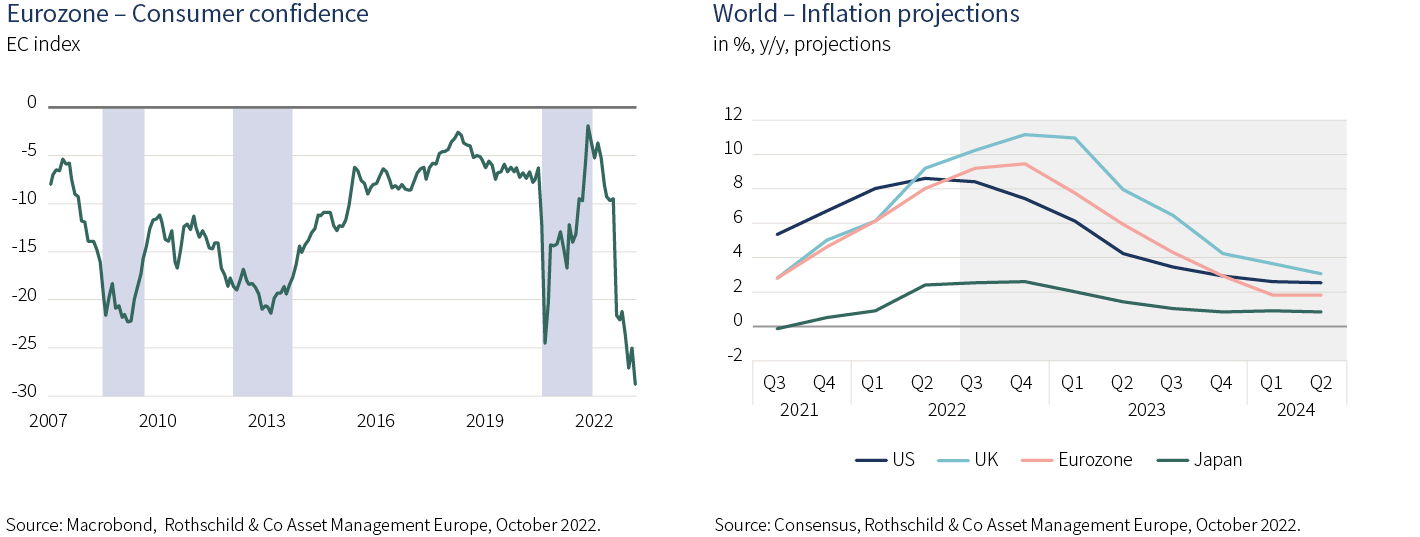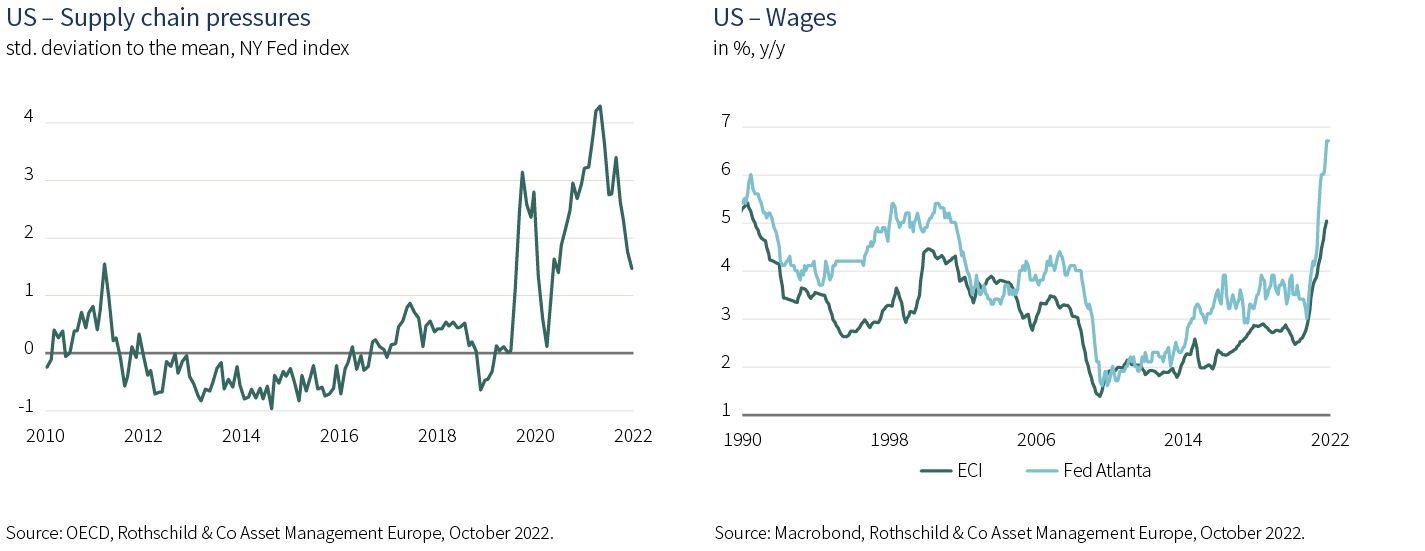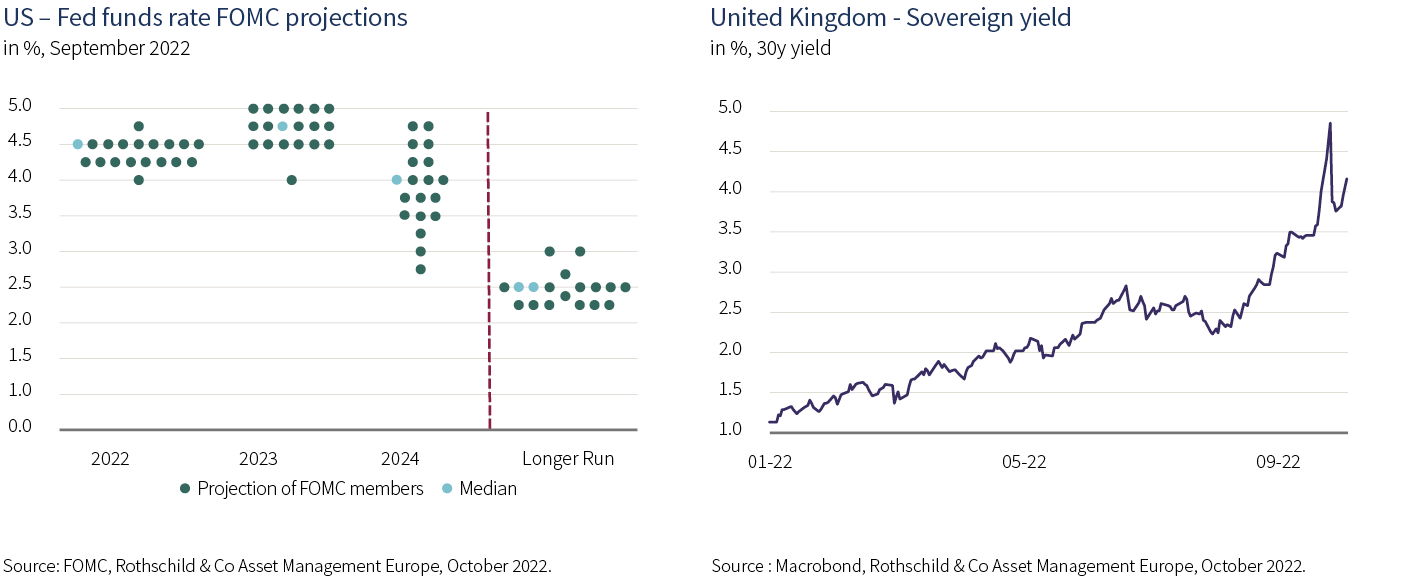Monthly Macro Insights | October 2022


"Global economic growth is faltering markedly and indicators point to an extended period of subdued growth, especially in Europe. Monetary policies around the world have been tightened briskly as the imbalances in supply and demand have led to price increases at a pace not seen for many decades. Although falling energy prices and easing bottleneck pressures point to a material drop in inflation during the second half of 2022, will this be enough to calm central banks?"
A loss of economic momentum becomes more and more visible
Equity markets have fallen sharply this year, nominal bond yields have risen, the US dollar has appreciated significantly and risk appetite has diminished, all contributing to a tightening in financial conditions. While it is likely that global GDP growth in the third quarter has been positive, helped by the Covid-reopening rebound in China, the outlook has darkened as consumer confidence tumbled to strikingly low levels in most advanced economies and business survey indicators point to deteriorating activity in many economies.
The S&P Global manufacturing business confidence index fell to 49.8 in September(1) and the output and new orders sub-components lost further ground, suggesting that global industrial production is slipping into recession. In fact, barring the pandemic lockdown months in the first half of 2020, the latest decline was the steepest since 2012, and the combination of weaker new order inflows and inventory building led to a deteriorating production outlook. Furthermore, the OECD Composite Leading Indicator for the OECD economies is at the lowest level since the 2008 global financial crisis, excepting a brief drop at the beginning of the pandemic in the spring of 2020.

High interest rates in the advanced economies, a strong greenback and weaker global trade are headwinds for emerging economies. China’s business confidence surveys show the pandemic situation is still severe and complex, and the negative impact of Covid controls on the economy is still pronounced, while activity is also dampened by the property rout and a deteriorating external backdrop.
Inflation is expected to ease gradually…
Russia’s war in Ukraine and the continuing impacts of Covid-19 outbreaks in some parts of the world have pushed up prices for several commodities and created serious disruptions to the energy markets in Europe, which has caused electricity prices to rise to very high levels. The drag is still building as evidenced by the further jump in September inflation in the Eurozone to a record 10%.(2)
However, inflation is expected to soften as shipping costs and most commodity prices are well off their highs, with much of the latter being driven by falling demand from China, while surveys indicate supply chain bottlenecks are easing.
… but cooling labour markets seems essential
Yet, inflationary pressures have become increasingly broad-based, with higher energy and other costs being passed through into prices. What’s more, wage growth has strengthened in many countries, particularly the United States, Canada and the United Kingdom, and higher labour costs are likely to slow the pace of decline of inflation. Correspondingly, policy rates have been raised more forcefully than most investors anticipated amid the risks of high inflation becoming entrenched in inflation expectations and feeding through into wage growth in historically-tight labour markets.
For instance, a US rail strike was averted mid-September only after the promise of a 24%(3) pay rise over five years plus lump sum payments. Rail strikes in the UK and air strikes in France are also recent examples of workers seeking to restore their purchasing power in the face of a severe cost of living squeeze.
In fact, the Fed has signalled the need to weaken US labour markets in order to generate slack and limit the passthrough of the past year’s inflation surge into prices and wages, prompting policymakers to guide the Fed funds rate to 4.5% by year-end and 4.75%(4) in 2023. Other advanced economies central banks – outside Japan – have shifted in sympathy as they believe higher unemployment over the next year is preferable to persistent inflation. Whether they maintain that will to stay the course once GDP stalls or drops, we will discover in the next few months, but speculation is growing among investors that the global wave of disruptive monetary tightening is nearing its end, especially after the Bank of Australia surprised investors by raising rates by 25 bps instead of the expected 50 bps. Yet, as Fed Chair Jerome Powell noted at Jackson Hole, the historical record cautions strongly against prematurely adopting looser monetary policy, especially since central banks are looking for compelling evidence that inflation is moving down. The August data showed that progress has been very slow thus far, particularly when excluding food and energy.
Can policy mix diverge?
Despite the higher debt accumulated during the pandemic and rising bond yields, soaring inflation has led governments to cushion the impact for households and businesses. However, measures to support economic activity will have to be balanced against the need to avoid persistent stimulus at a time of elevated imbalances between supply and demand that have entailed price increases at a pace not seen for many decades. Otherwise, it would require monetary policy to be tighter for longer and raised debt service costs.

In that regard, the UK Government has announced a fiscal plan notably containing unfunded tax cuts and approaching the scale of what was delivered in the pandemic, thus implying a considerable boost for demand in a supply-constrained economy. In turn, the pound depreciated and bond yields surged, and the Bank of England (BoE) was forced to suspend its Quantitative Tightenning(5) programme and engage in unlimited gilt purchases on financial stability grounds. Indeed, central to the BoE’s extraordinary announcement was panic among pension funds, with part of their bonds portfolio losing around half its value in a matter of days. While justified, the form of its intervention however raises questions and could strengthen the suspicion that fiscal dominance will jeopardise the independence and credibility of central banks. That said, BoE Chief Economist Huw Pill stressed that the bank’s commitment to bringing inflation back down to its 2% target is unwavering and hinted at a significant monetary policy response to come at the November meeting.
Completed writting on 6 October 2022

(1) Purchasing Managers’ Index, an indicator reflecting the confidence of purchasing managers in a sector of activity. Above 50, it expresses an expansion of activity, below 50, a contraction – S&P Global, Rothschild & Co Asset Management Europe, october 2022.
(2) FOMC, Rothschild & Co Asset Management Europe, october 2022.
(3) Eurostat, Rothschild & Co Asset Management Europe, october 2022.
(4) Bloomberg, Rothschild & Co Asset Management Europe, october 2022.
(5) Less accommodative monetary policy.
Press contacts :
Gunther De Backer
Olivier Duquaine